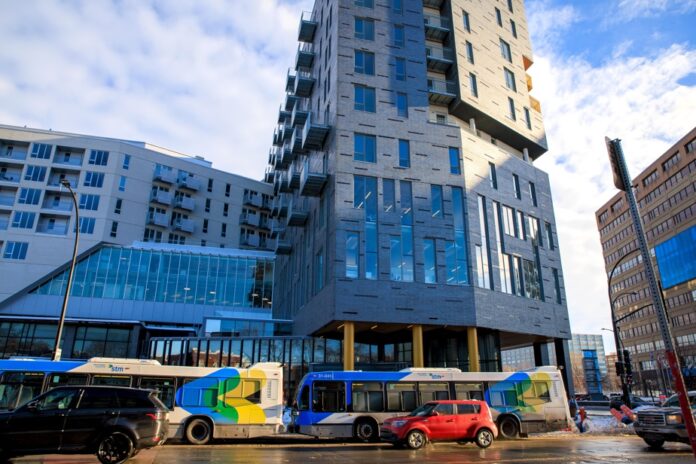The Union des municipalités du Québec (UMQ) is defending its support approach with cities that establish royalties on new housing despite a recent legal opinion concluding that the municipal by-laws adopted in this regard do not comply with the Act respecting planning and town planning.
The Union does not intend to modify its documentation at this time, it told La Presse on Tuesday.
In a legal opinion produced on Monday, the Urban Development Institute of Quebec (IDU) argues that the various municipal by-laws recently adopted risk being declared invalid by the courts in the event of a dispute.
The UMQ provides municipalities with an accompanying guide relating to the development levy, which includes a standard by-law that cities have used as inspiration in drafting their own by-laws.
“The guide was launched last fall. Many of our members want to use it. For the moment, we have a very solid tool that can be applied by municipalities according to their specific reality,” said Patrick Lemieux, spokesperson for the UMQ, during a videoconference.
“In my humble opinion, the model that is there is an example in line with the power that is given by the legislator to the municipalities”, added the legal adviser of the UMQ, Me Paul Wayland, who specifies not having seen the content of the legal opinion produced by the IDU.
That said, nothing prevents the guide from being improved in the future according to the evolution of the situation and the future decisions of the courts, said Mr. Lemieux.
Authorized by Quebec since 2016, the municipal development charge aims to make developers and builders of new housing pay the marginal cost of municipal services resulting from population growth. It is also a way for cities to diversify and increase their sources of revenue, otherwise too dependent on property tax.
The fee varies from $4,000 to $6,000 per dwelling, depending on the city. However, it can reach up to $15,000 for high-rise housing in Beauharnois. The fee payable when the building permit is granted risks being transferred to the price or rent of the accommodation that its future occupant will have to pay. Critics argue that the levy will fuel housing inflation, amid a housing affordability crisis.
The IDU’s opinion was written by two lawyers from McCarthy Tétrault who studied the content of the regulations establishing a fee adopted by some twenty Quebec cities.
The document suggests that these regulations do not meet the conditions provided for in the LAU to establish a development charge. Lawyers criticize in particular the imprecise nature of their provisions and the absence of control measures.
The UMQ defended the content of its documentation by emphasizing that it was in line with the government’s orientation seeking to give cities as much flexibility as possible in the application of their new powers in recognition of their status as local governments. .





